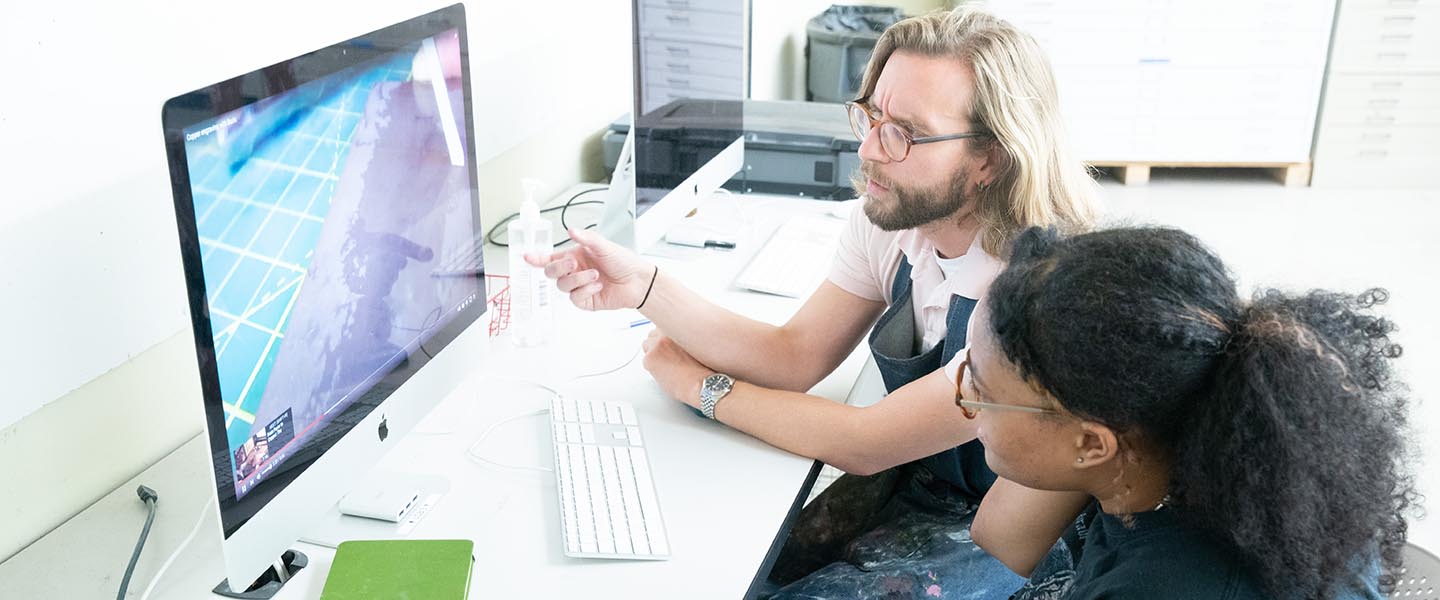Immerse yourself in a fulfilling general education experience in the heart of Music City.
Belmont's BELL Core Curriculum provides you with a liberal arts education that promotes an interdisciplinary approach to solving the world's complex issues. The BELL Core nurtures your ability to transform the world while also serving as a complement to majors across the University.
As you progress through the curriculum you will engage in courses that explore a range of topics: from the foundational First Year Seminar - which explores "ways of knowing" or, simply, how do we know what we think we know - to the reflective Senior Capstone - which contemplates how your BELL Core courses have complemented your major coursework.
Your learning doesn't stop there.
The BELL Core Curriculum values the importance of extending the boundaries of learning beyond the classroom and applying classroom learning to the real world. For you, this means engaging with your colleagues in tackling some of the most important problems plaguing the world today. You might collaborate with a classmate from a different major to connect disciplines and present solutions to these problems that ensure a life abundant for all.
The BELL Core Curriculum is divided into three subcategories: Signature Courses, Foundations Courses and Degree Cognates.
Curriculum
These put Belmont’s unique signature on a liberal arts education by providing vertical structure and establishing two particular areas of strength.
- First-Year Seminar (3 hours)
- Interdisciplinary Learning Communities (hours count elsewhere)
- Junior Cornerstone (hours count elsewhere)
- Senior Capstone (1-3 hours)
- Writing, First and Third Year (6 hours)
- Religion, First and Third Year (6 hours)
These are the proper foundation of every human being’s education, representing a spectrum of learning that is roughly akin to the traditional liberal arts.
- Oral Communication (3 hours)
- Social Science (3 hours)
- Humanities (3 hours)
- Fine Arts (3 hours)
- Quantitative Reasoning (3 hours)
- Lab Science (4 hours)
- Wellness (3 hours)
These distinguish the various degrees from one another, indicating the extension of liberal learning that is appropriate to each distinct degree. You are only required to take the hours listed under the particular degree you are pursuing.
- Bachelor of Arts (BA): 15 hours
- 3 additional hours in Social Science
- 3 additional hours in Humanities
- 6 hours in Foreign Language
- 3 additional hours in Science
- Bachelor of Science (BS): 15 hours
- 6 additional hours in Social Science
- 3 additional hours in Humanities
- 3 additional hours in Math
- 3 additional hours in Science
- Bachelor of Business Administration (BBA): 12 hours
- ECO 2210: Principles of Macroeconomics (3 hours)
- ECO 2220: Principles of Microeconomics (3 hours)
- MTH 1150: Elementary Statistics (3 hours)
- 3 additional hours in Humanities
- Bachelor of Science in Nursing (BSN): 10 hours
- MTH 1151, Elementary Statistics for the Sciences
- PSY 1100: General Psychology (3 hours) OR
- PSY1200: Introduction to Psychological Science (4 hours)
- CEM 1020, General, Organic, and Biochemistry (4 hours)
-
- BIO 1120, Principles of Biology II (4 Hours)
- MTH 1151, Elementary Statistics for the Sciences (3 Hours)
- PSC 1300, U.S. and World Affairs (3 Hours)
- ECO 2220, Principles of Microeconomics (3 Hours)
- Bachelor of Social Work (BSW): 12 hours
- 6 additional hours in Social Science
- MTH 1550, Elementary Statistics
- PSY 1100: General Psychology (3 hours) OR
- PSY1200: Introduction to Psychological Science (4 hours)
- Bachelor of Music (BM): no Degree Cognates
- Bachelor of Fine Arts (BFA): no Degree Cognates
To learn more about each of these categories and to see the courses that fall into each, view our description of program requirements.
Dear Belmont Students,
Welcome to the Bell Core—our award-winning general education curriculum designed to support your intellectual growth, personal development, and preparation for the complexities of the world beyond the classroom. Through courses that emphasize both critical thinking and real-world application, the Bell Core provides the foundation for life-long learning, the cultivation of moral values, and the formation of personal commitments.
At the heart of the Bell Core is our commitment to helping you reflect on and refine your sense of purpose, integrity, and responsibility. We believe that by fostering these qualities, we can equip the next generation of leaders to meet global challenges with empathy, insight, and resilience.
Our goal is not only to prepare you academically but also to shape a campus culture that values both excellence and empathy. In the Bell Core, you’ll find a space to develop the skills necessary to lead in ways that inspire, serve, and build communities that reflect the highest standards of integrity and respect for all people.
We are excited to support you as you embark on this transformative journey, and we look forward to the contributions you will make as you engage in this unique and powerful educational experience.
Like Dr. Maya Angelou once said, "When you get, give. When you learn, teach." Now, let's get started!
Dr. Amy Hodges Hamilton
Director of Undergraduate Core Curriculum
Professor of English and Global Honors
Learning Outcomes
Among the many things that you will take with you upon completion of the BELL Core Curriculum, the following are Learning Outcomes that every student can expect to learn along the way.
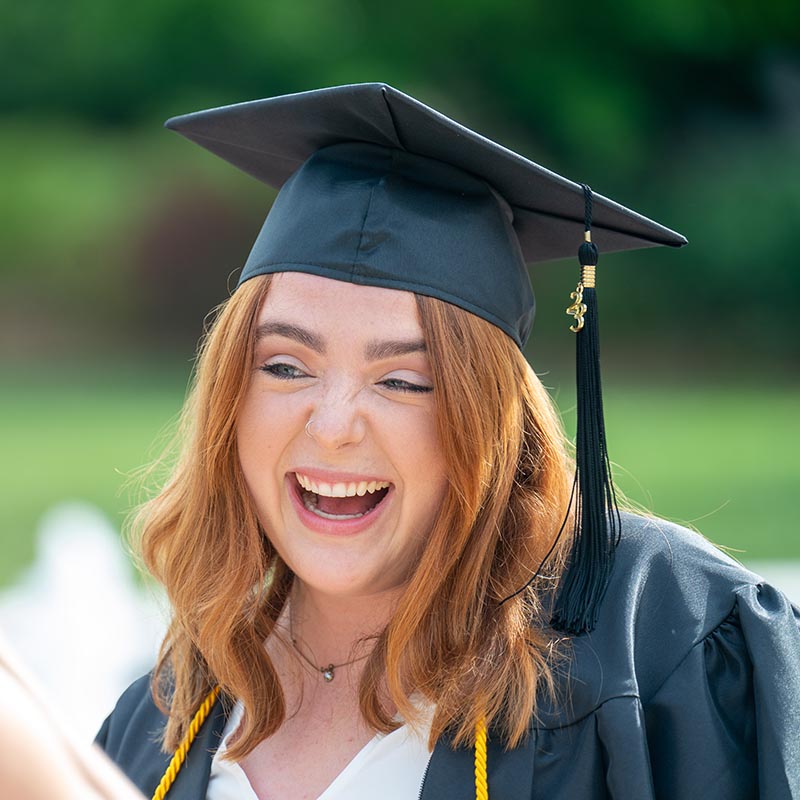
Connecting Disciplines
The BELL Core engages students in a range of individual disciplines including humanities, social sciences, sciences, arts, quantitative reasoning, religion and wellness. You'll learn how to recognize the connections among disciplines and develop an integrated, contextualized understanding of the world around you.
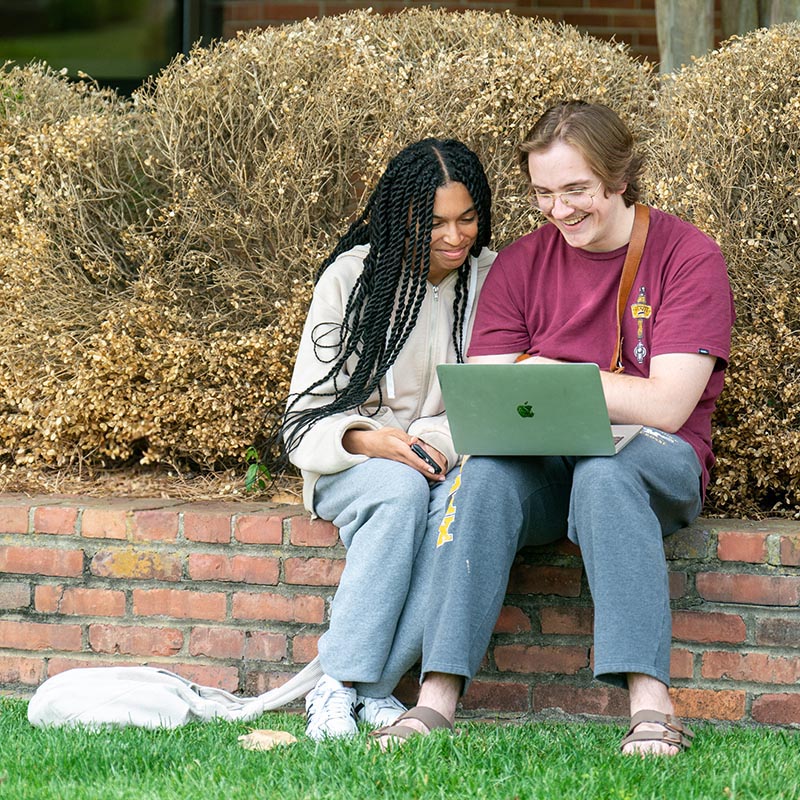
Communication
The BELL Core seeks to develop your writing, speaking, listening and presenting skills. You'll learn how to effectively communicate complex and interesting ideas in ways that are compelling, substantive and persuasive.
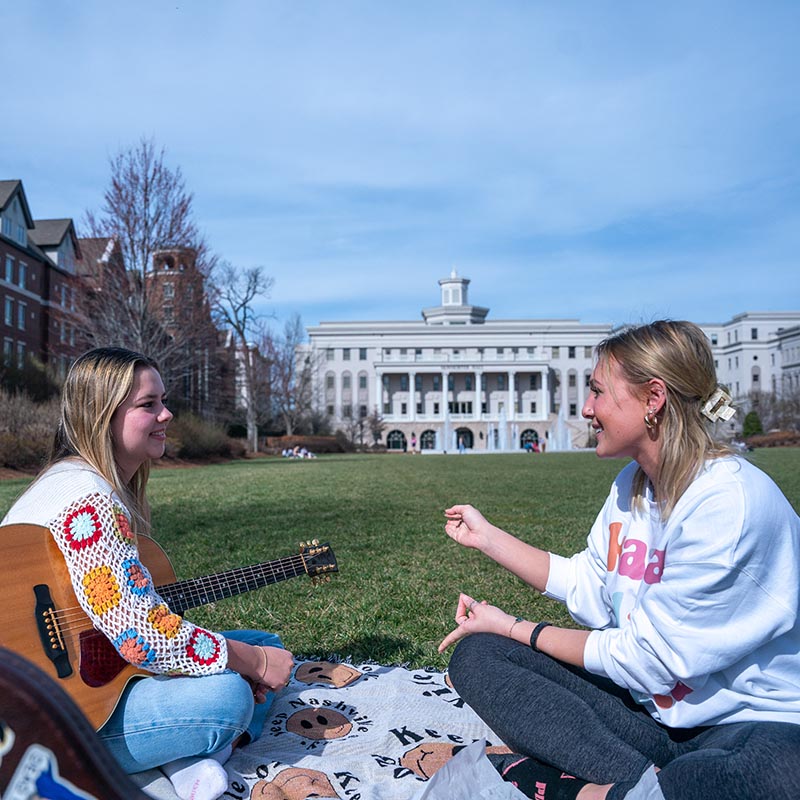
Collaboration
The BELL Core encourages students to learn, grow and support each other as team members. You'll learn how to solve problems through collaboration, bringing the contributions of diverse peers together toward a solution.
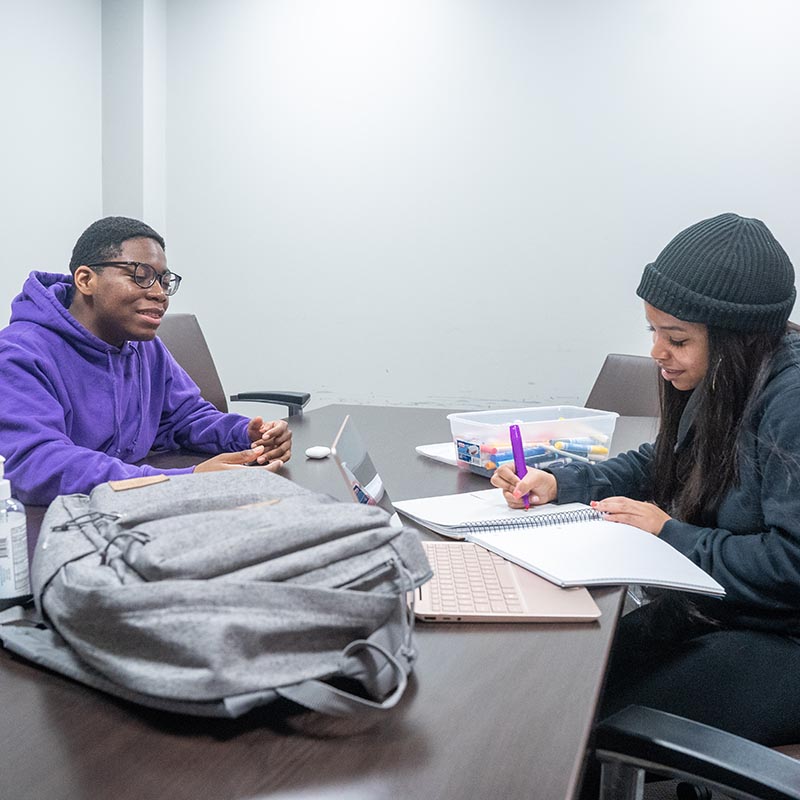
Critical Thinking
BELL Core students will pose meaningful questions and seek imaginative answers using evidence-based reasoning to solve complex problems and contribute new knowledge to the world. You'll learn how to critically evaluate knowledge claims and competing sets of evidence, toward forming your own reasoned conclusions.
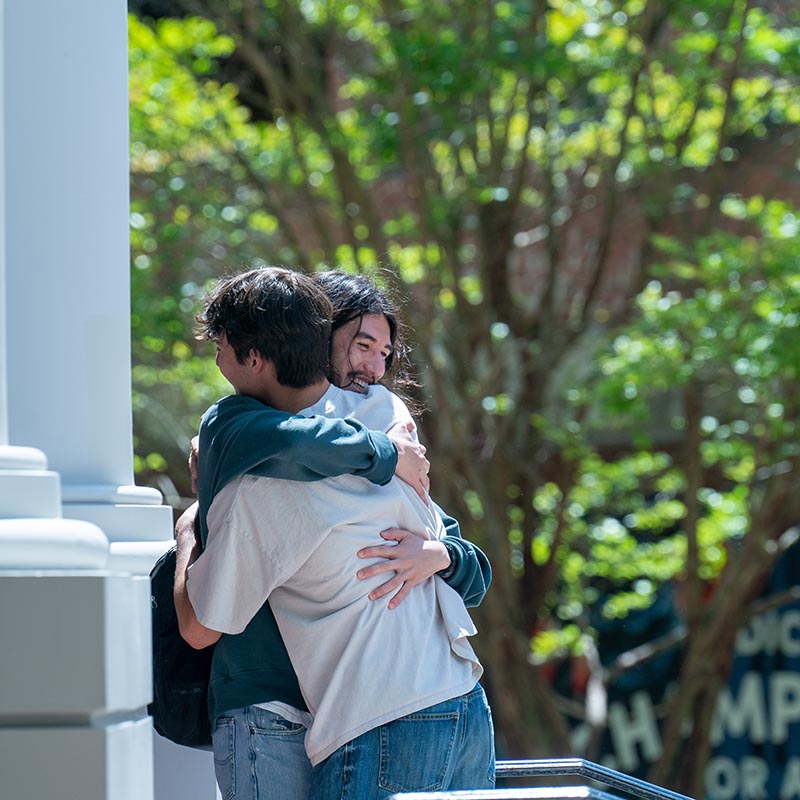
Citizenship
The BELL Core encourages students to act as ethical citizens by increasing their cultural knowledge and social understanding. You'll learn to consider various viewpoints, think deeply about public values and engage in civil discourse across even passioned disagreements.
Purpose: Vision and Values
Purpose:
General Education at Belmont University fosters the skills, knowledge, perspectives, values, and dispositions that will enable students to apply their understandings and abilities beyond the classroom, encouraging them to become responsibly engaged in their community and in the world.
Vision:
The diverse educational communities of a comprehensive university have a common interest in liberal learning. Liberal learning nurtures each student’s capability for transforming human culture and complements professional and vocational pathways. Liberal education involves acquiring fundamental intellectual skills; becoming conversant with a variety of human ideas, cultural perspectives, and conceptual frameworks; and developing habits of ethical reflecting and acting in an interdependent world. This vision of General Education enables Belmont University to achieve its vision to be a premier teaching university, bringing together the best of liberal arts and professional education in a Christian community of learning and service.
Values:
These values will be infused throughout the courses in the General Education curriculum and pursued through a wide variety of active learning experiences, all of which seek to meet the learning goals delineated below:
- The importance of life-long intellectual growth and development;
- The importance of moral values and personal commitments;
- The importance of the application of classroom learning to the "real world";
- The importance of extending the boundaries of learning beyond the classroom.

